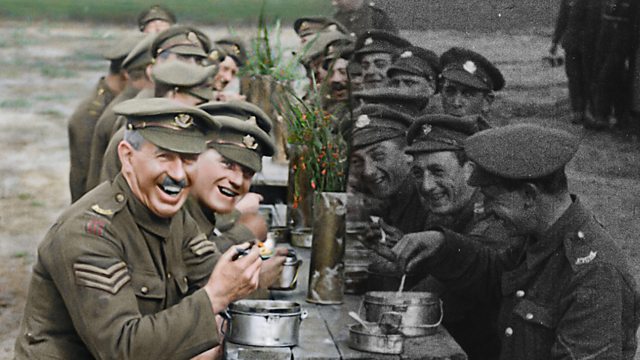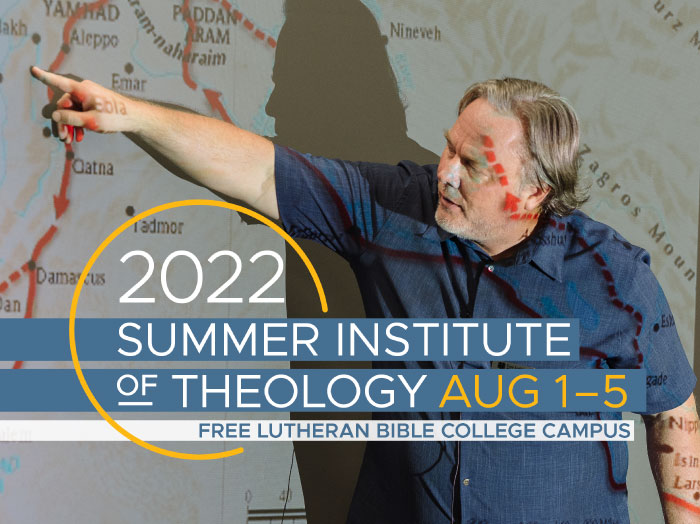
Life is short. Why should I spend time studying the Old Testament when the New Testament seems to supersede it?
The short answer is that the New Testament tells us to. The NT vouches for the continuing value of the OT. Two NT passages are explicit about this. One, we might say, is a Law passage, and the other is a Gospel passage.
First, in 1 Corinthians 10, the Apostle Paul tells us that the LORD’s judgments of OT Israel were recorded for our benefit. Here Paul recounts the LORD’s judgments of Israel during the Wilderness Wandering, and concludes, in verse 11, “Now these things happened to them as an example, but they were written down for our instruction, on whom the end of the ages has come.” In other words, these stories about the LORD’s wrath against sin are still relevant to us today who are living in the end times. God had them written down to warn us.
Secondly, in Romans 15:4, Paul says again that the OT was written for God’s people today. In this verse, however, he emphasizes the Good News found in the OT. He writes, “For whatever was written in former days was written for our instruction, that through endurance and through the encouragement of the Scriptures we might have hope.” The Old Testament accounts, then, are written to give God’s people, the Church of Jesus Christ, encouragement and hope.
If God says the OT is still for our instruction today, that’s really all the reason we need to study it. But I want to add this further reason, based on my personal experience: Truly, I love to read the New Testament now, at a whole new level of understanding and enjoyment than I ever had before I studied the OT in earnest. Like many, I grew up learning the OT stories in Sunday School and VBS. I enjoyed reading about Joseph and David and Daniel and his friends—thrilling stories about how God helps His people. These men trusted in the LORD, and He saved them out of difficult circumstances. So, I learned, if I trust in the LORD, He’ll help me, too.
But when I finally immersed myself in studying the OT, I learned that I’d missed the most important lesson of all: The OT and NT together are one story about how God has saved and will save His people, not just out of difficult circumstances in this life, but from the devil and from the curse of sin and death.
“When I finally immersed myself in studying the OT, I learned that I’d missed the most important lesson of all: The OT and NT together are one story about how God has saved and will save His people.”
In other words, I learned that the OT and NT together are essentially about Jesus. All of the most important promises in the OT are about Him and what He would accomplish. All of the most important stories in the OT are pointing to Him in some way and preparing the way for His coming. And, in fact, I learned that Jesus shows up in the OT. When we read about “the angel of the LORD,” that’s Jesus appearing in some form before Bethlehem. So, I read OT stories like the angel of the LORD visiting Hagar in the wilderness with a whole new level of appreciation now. And I read the NT accounts about Jesus at a whole new level of vibrancy.
My experience with reading the NT after finally understanding the design of the OT reminds me of watching Peter Jackson movies. First, imagine watching the third movie in the Lord of the Rings trilogy without watching the prior two. You may still understand and enjoy the third film, but only a fraction as much as you would have if you had seen The Fellowship of the Ring or The Two Towers. Based on word-count, about 77.5% of the Bible is the OT. By analogy, starting to read the Bible at Matthew 1:1, ignoring Genesis through Malachi, is like starting to watch the Lord of the Rings trilogy at the 75 minute-mark of The Return of the King.
Secondly, there’s Peter Jackson’s movie about World War I. Jackson patched together actual camera footage of WWI trench life, and then he tweaked its unnaturally fast pacing and colorized it. Watching They Shall Not Grow Old, I felt like I was actually there, and that these WWI soldiers were real people— not just strange, mechanical actors in an old movie. That’s what studying the OT has done for me: it’s brought the whole Bible, particularly the NT, into sharp, living color.

I see more clearly who Jesus is now. I understand more sharply the things people said about Him and the things He said Himself. I understand more precisely what He did and why. Perhaps most importantly, I perceive more powerfully why I must seek to know Him and worship Him above all other things in life; why there’s nothing better in this world than to have a personal relationship with Him and to trust Him for all things, especially for life, both abundant and eternal.
In the end, the OT and the NT complement each other. Two great gifts. Together, they’re God’s gracious revelation to us about His plans to save us through His Son Jesus. To neglect the OT is to reject God’s gift and to disobey His Word. To receive the OT with thankfulness and study it with passion along with the NT is the way to life-giving understanding and joy.

For more, watch Dr. Brent Olson’s lecture series on Salvation History from our 2022 Summer Institute of Theology.
Share this Post
